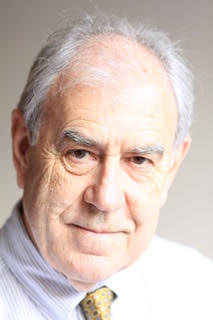Richard Butler. American Greed trumps the American Dream: With help from the referee.
May 22, 2014
During the last two weeks a Professor from the Paris School of Economics, Thomas Piketty, has been touring the US speaking about his book; Capital in the Twenty-First Century. His audiences have been overflowing. Public television described the reception he has received as reminiscent of that given the Beatles, in their first visit to the US, fifty years ago. The book was briefly sold out on Amazon.
Capital is not an argument, a Manifesto. It is a proof based on research conducted over ten years, analyzing data from twenty countries, in the 18th, 19th and 20th Centuries. It shows that when the returns to capital exceed the rate of growth in the overall economy, extreme inequality results. In the past, this has led to extreme political breakdown. It could do so again.
Amazing though it might seem, that a 685 page book of economic analysis should attract such popular attention, there are comprehensible and very serious reasons for this.
The global financial crisis of 2008 exposed, among many things, the massive and pervasive greed within the financial system called Wall Street. The standout winners in this system were a handful of financial industry leaders who took home annual pay in the hundreds of millions. The losers were tens of thousands of little mortgage owners who lost their homes.
The State declared that the Banks were too big to fail and rescued them with taxpayer-funded bailouts. Lets assume that this was a sound macroeconomic judgment, designed to head off a full-blown depression. What should then have followed, is that by state regulation and reformed behaviors by the Banks, this would not happen again.
Last week it was reported that the bundling of mortgages, for trading, is now at a level exceeding that of 2008 and the take home pay of senior Wall street executives is again in the $300-500 million mark. So, its happening again.
The larger picture continues to include these facts: 1% of Americans dispose of 35-40% of the national wealth; 20% live at the official poverty line; the minimum wage continues to be $7.25 per hour; 1%, some 3 million persons, are in goal.
Americans are aware of these disturbing realities and for this reason as well as their attachment to the idea of scientific proofs, as such, there isgreat interest in Pikettys book. Indeed, he does suggest some rational solutions: regulation, taxation policies etc.
But, there is a deeper problem which must be addressed: the transformation of the original notion of liberty which was an important part of the establishment of the United States, from a political and communal notion, into an individualized, economic and selfish one.
Simply, today the word and term liberty now means the right to make as much money for yourself as possible. This is dignified by terms such as initiative, enterprise, risk taking. But, its major feature is outright hostility to taxation and government expenditures, and perhaps above all, regulation; for example, financial or environmental regulation. Public goods are to be provided voluntarily by citizens who care. The community is to rely on trickle down.
In this context, Opposition Leader Bill Shorten, speaking in reply to the Abbot/Hockey Budget, drew an accurate comparison between their approach and that of the Tea Party Republicans in the US.
The notion of the American Dream, advanced by James Adams in 1931, fired popular imagination. It was quintessentially optimistic and communal. Through hard work and because progress was inherent in the American way, our children could be better off than we were and our community would be too. This simplified picture, Norman Rockwells pictures, a dream, was to be disturbed by the coming to terms with the pervasive racism of America. But, it is relevant that the political leader who did address racism, Lyndon Johnson, accompanied this with the economic egalitarianism of his Great Society programs.
Today, the term American Dream is recited as a mantra, particularly by conservative politicians, but now unambiguously means the right to be selfish. This is proving to be deeply destructive of America, where it counts: destructive of any acceptable level of belief in the political system; belief in fair reward for effort, or in distributive justice generally; and willingness to forego immediate gratification in favor of longer-term projects. A cursory look at Americas crumbling infrastructure demonstrates this, latter, awful failing.
Pikettys possible solutions include regulation. But his means political action within a democratic system and the assent of the Courts in their role as referee. And, this is possibly the bleakest part of the presentoutlook. Conservatives within the US political spectrum are trenchantly opposed to any active or worse, interventionist role, of Government. Theyworship at the shrine of liberty defined as the right to personal greed. Indeed, they often say it is Gods way. Lest they falter, they are shored up by financial support of a previously unheard of magnitude from private groups themselves possessing transparently clear personal interests, such as the coal billionaires the Koch brothers, who reject the existence human made climate change.
And, keeping the most disturbing element to last, the ultimate referee, the US Supreme Court, in two recent judgments has interpreted the Constitution as meaning that Corporations are individuals and the dollars they spend, on political campaigns, are the exercise of free speech; and they have removed almost all limits on such spending. There is widespread alarm that the Court has sold the democracy.
While, Piketty may have proven that inequality is the inevitable outcome of a system of disparity between rewards to capital and growth in the economy and, as if this needed proof, will destroy any effective polity, the elemental American dilemma is in fact one of grasping reality rather than preferring a dream, a cartoon.
Richard Butler was former Australian Ambassador to the United Nations, Governor of Tasmania, now Professor of International Affairs at Penn State University.
